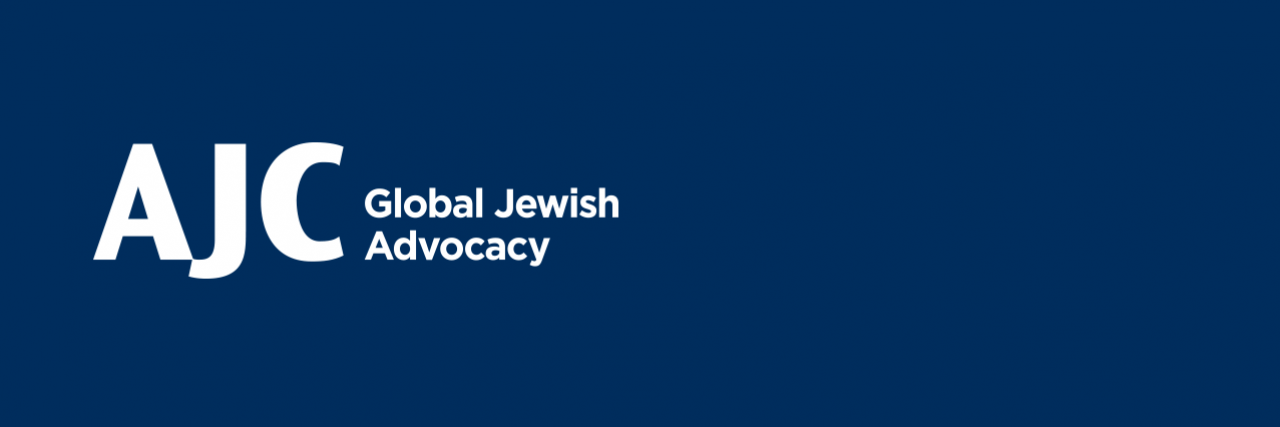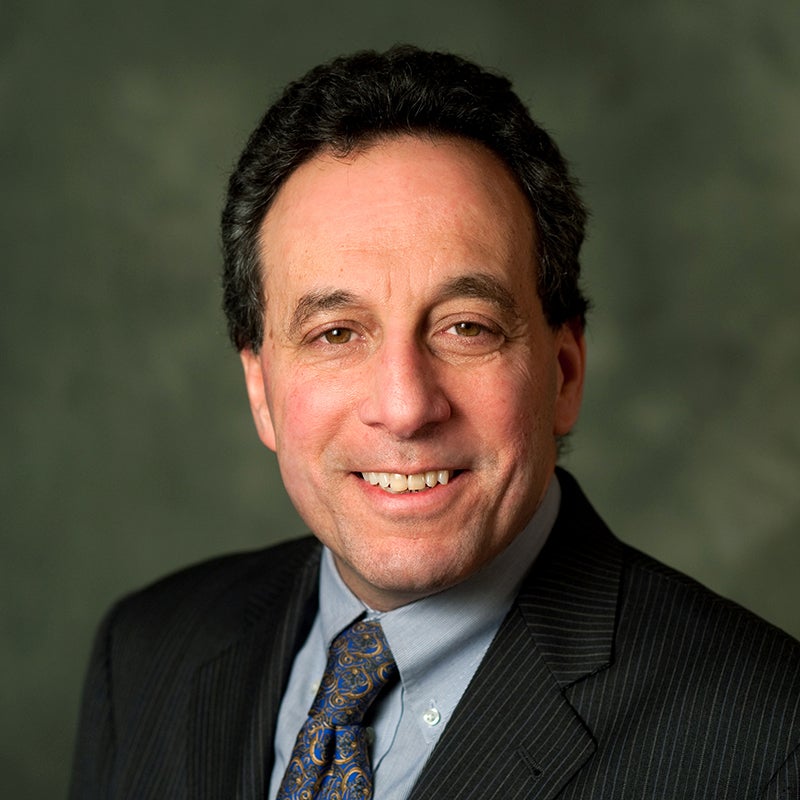May 11, 2020 — New York
This piece originally appeared in The Jerusalem Post.
Trust, cooperation and opportunity are inspiring words sorely needed on any day, even more so amid the coronavirus pandemic. With virtually no country unscathed, and the prognosis uncertain for what will be its duration and long-term ramifications, some of the world’s smaller nations are exhibiting creative leadership in organizing effective responses within their borders and collaborative interactions internationally.
One dynamic example is the United Arab Emirates. In a rare public dialogue, UAE Ambassador to the UN Lana Nusseibeh shared how the UAE is dealing with the pandemic, interfaith coexistence in her country, and Israel’s place in the region. The refreshingly frank conversation with Nusseibeh and my colleague Jason Isaacson aired live on AJC Advocacy Anywhere, the American Jewish Committee’s popular online program.
“Confronting the threat of coronavirus requires trust,” in one’s own government as well as in international organizations coordinating strategies, Nusseibeh said. “Be honest with your population. Explaining a facts-based, science-based approach is the first step for governments to take. And admit when we don’t know the answers.”
A recent survey showed that 85% of the UAE population thinks “the government is doing an excellent job and they have a high-level trust in government,” Nusseibeh said. That figure includes both Emirati citizens and the 90% of the population who are expatriates, representing 200 nationalities and multiple faiths, including an active Jewish community.
After the World Health Organization’s declaration of the pandemic, the UAE implemented “a fast-paced testing regime in the beginning of January,” said Nusseibeh. Over one million people, 10% of the population, have been tested for free, and currently there are more than 25,000 daily tests being administered.
Longstanding investments in the country’s healthcare system, a partnership between the government and the private sector, as well as experiences with previous outbreaks – Ebola, SARS and MERS – helped prepare the country to react nimbly. At the same time, while the UAE, like most countries, shut its borders to protect its population, the government ensured that cargo planes continued to land and takeoff.
“The UAE is a hub for essential cargo and medical supplies,” said Nusseibeh, noting that 85% of the traffic in personal protective equipment has moved through the UAE. “It’s an important contribution to the global efforts to defeat COVID-19.”
Regional and international organizations can play critical roles in bringing governments together to act in concert, especially in a crisis.
“We cannot defeat this without a global mechanism, an international response,” she said. “The trust barometer in the international system needs to be raised a bar or two in order for this to be effective.”
That means setting aside political differences and conflicts to focus on containing the spread of the disease, seek treatments to heal those stricken, and develop vaccines.
“We have made sure that our science community – epidemiologists and doctors – are collaborating with doctors around the world,” the ambassador said. She congratulated “Israeli epidemiologists and doctors who reportedly have potentially found a breakthrough for treating COVID-19. That’s very exciting.”
While there are not currently joint efforts on the coronavirus, “it would not be unusual” to work with Israeli doctors and medical researchers, she said. “We’ve had Israeli medics participate in events in the past in UAE.”
“This public health space should be a non-politicized space, where we all try and pool our collective knowledge of this virus in order to improve the lives of many people around the world,” she added.
The openness of a senior diplomat from an Arab country that does not have formal relations with Israel is incredibly refreshing and inspiring. But for the UAE and Ambassador Nusseibeh herself, not totally surprising.
Since the UAE was established almost 50 years ago, the federation of seven sheikdoms has long been committed to interfaith coexistence, and a policy of zero-tolerance for hate online and offline.
“We want that narrative of an interfaith coexistence to be the narrative of our region. We don’t want a narrative of divisiveness and of extremism,” she said.
In a similar vein, the UAE has tried to contribute to advancing understanding between Israel and the Arab world.
“The UAE, since the Arab Peace Initiative, has recognized that Israel is part of our region and we have offered that Israel is fully integrated as part of our region, with, of course, the caveat that there needs to be a viable Palestinian state, a two-state solution, and peace between the Israelis and Palestinians, and the Israelis and the rest of the Arab world,” said Nusseibeh.
Still, the UAE is not allowing a stagnant peace process to preclude cooperating on healthcare, the environment and other important issues affecting what she calls “human security.”
Israel was slated to participate in Expo 2020 in Dubai later this year, until COVID-19 forced its postponement, and Israel maintains in Abu Dhabi a mission to the UN International Renewable Energy Agency.
She noted that UN Special Coordinator for the Middle East Peace Process Nickolay Mladenov, who appeared on another AJC Advocacy Anywhere program, spoke about the assistance Israeli health authorities have been providing Palestinians in the West Bank and Gaza.
“Hopefully, that cooperation can be the beginning of a wider cooperation and a wider rebuilding of the trust deficit that has clearly appeared in the last several years,” said Nusseibeh. “At the same time, perhaps COVID-19 can continue to open those doors of cooperation.”
Achieving peace requires visionary thinking, as does confronting and overcoming the COVID-19 pandemic. It takes lots of work. But the wisdom shared by Ambassador Nusseibeh is positive reinforcement that crises can yield opportunities.
The writer is the American Jewish Committee’s director of media relations.



